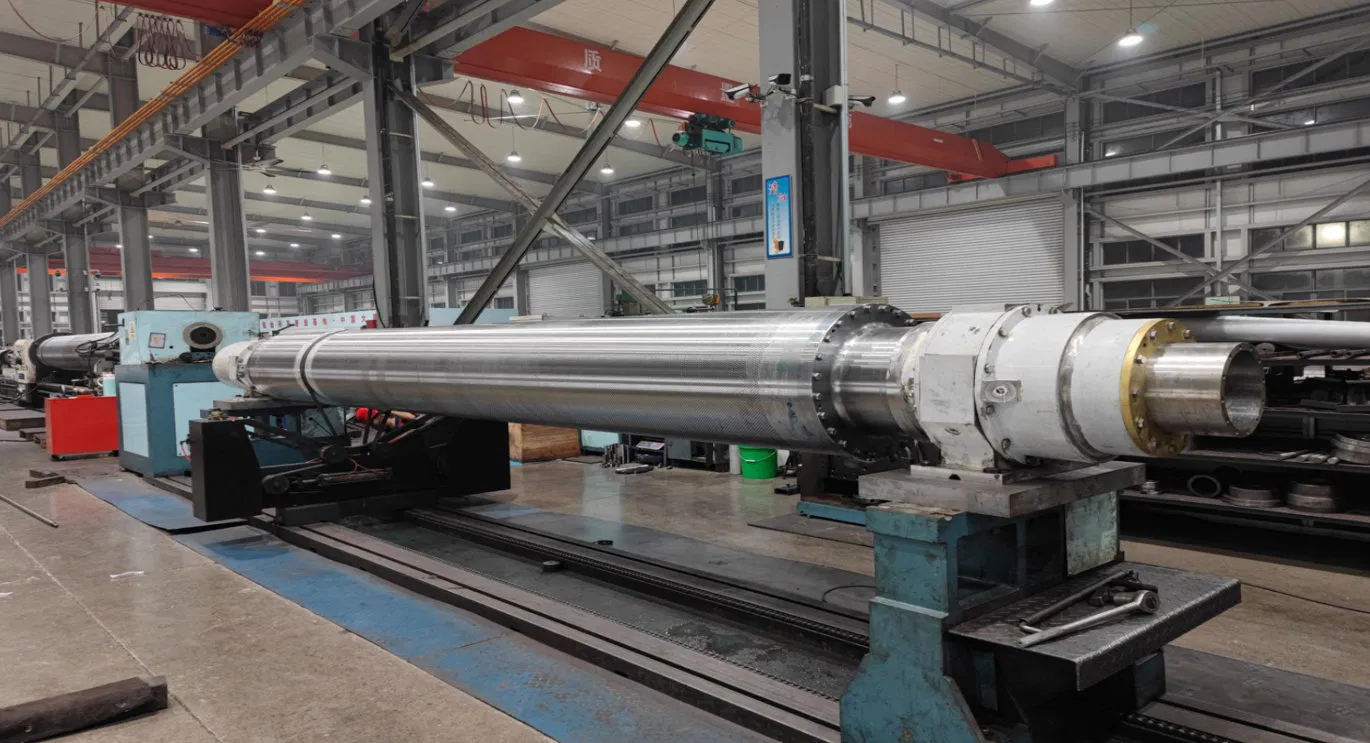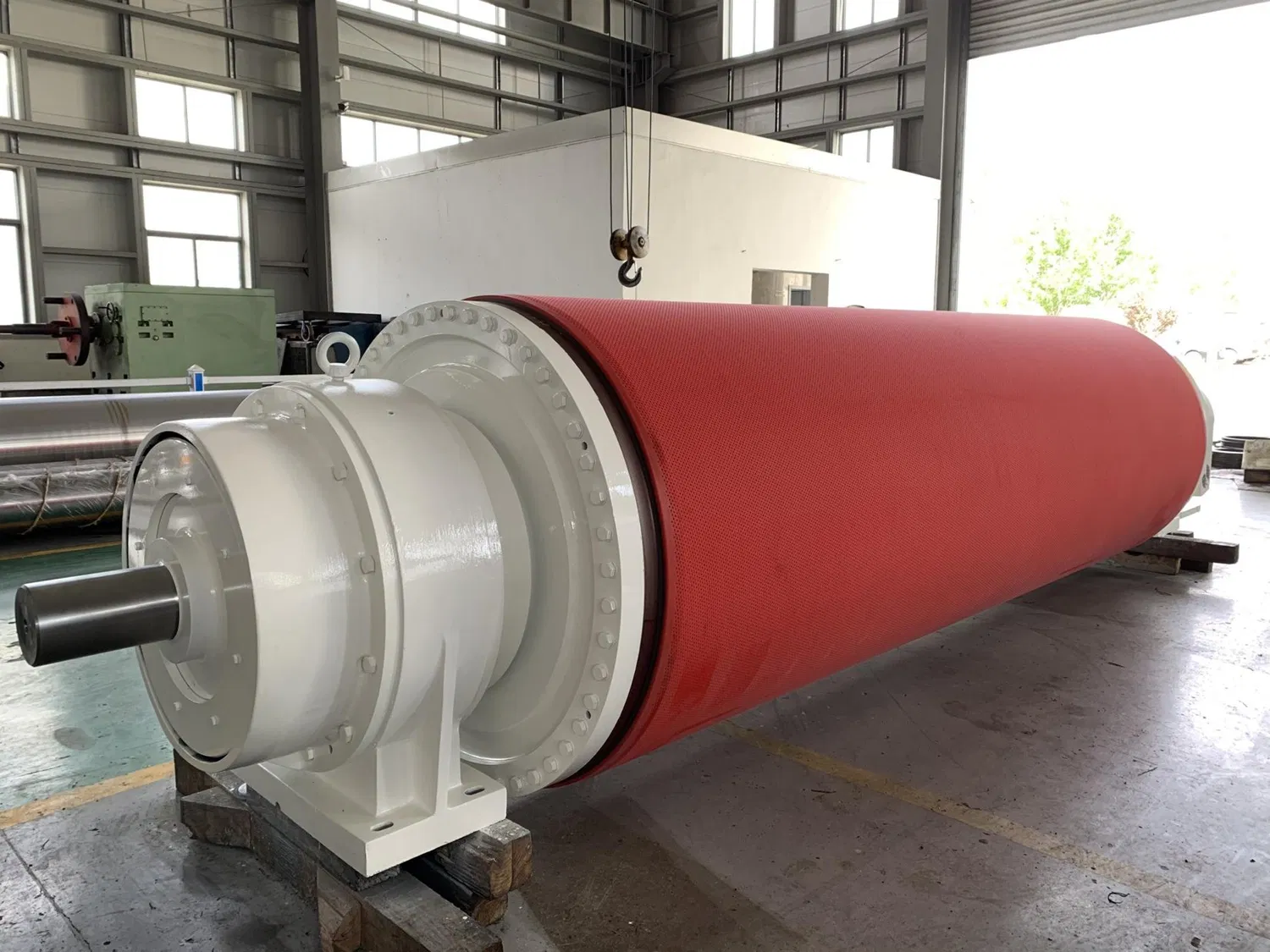In the intricate dance of modern manufacturing, countless components work in harmony to create the products we rely on daily. From the plastic film wrapping your food to the paper in your printer, high-speed, high-precision processes are at play. Have you ever wondered what keeps these delicate, wide webs of material perfectly aligned, heated, cooled, or held in place as they fly through machinery at incredible speeds? To be honest, the answer often lies in a component that many overlook: the industrial roll.
More specifically, we're talking about the blind drilled roll. This isn't just any roller; it's a marvel of engineering designed for sophisticated tasks like creating a vacuum, circulating thermal fluids, or managing static. But here's the critical point that often gets missed: the performance of this vital component is almost entirely dependent on the expertise and quality of its creator. Choosing the right Blind drilled roll distributor isn't just a procurement task; it's a strategic decision that directly impacts your production quality, efficiency, and bottom line. In this guide, we'll explore why this choice is so crucial and what you need to look for in a manufacturing partner.
What Exactly Is a Blind Drilled Roll? Unpacking the Technology
Before we can appreciate the importance of the distributor, we need to understand the product itself. The term "blind drilled" might sound a bit mysterious, but the concept is quite straightforward. Imagine drilling a hole into a solid block of metal, but stopping before you break through to the other side. That's a blind hole. A blind drilled roll is a cylindrical roll that has been perforated with a precise pattern of these blind holes across its surface.
The "Why" Behind the Blind Hole
So, why not just drill all the way through? The genius of the blind drill is that it creates a sealed chamber just beneath the roll's surface. These holes are interconnected by a network of internal channels that lead back to a single source. This design allows for two primary functions:
- Vacuum Application: By connecting the internal channels to a vacuum pump, a suction force is generated at the surface of the roll through each tiny hole. This is perfect for holding a lightweight material (like a thin film or nonwoven fabric) securely against the roll's surface without clamps or nips that could cause damage.
- Thermal Management: Alternatively, these internal channels can be used to circulate heated or cooled fluids, like water, oil, or glycol. This turns the roll into a highly efficient heat exchanger, allowing it to precisely heat or cool a material web as it passes over the surface.
It's worth noting that the engineering behind this is incredibly complex. The hole pattern, depth, diameter, and internal channel design must be perfectly calculated to ensure uniform vacuum or temperature across the entire face of the roll. This is where precision blind drilled roll manufacturing becomes non-negotiable. Any inconsistency can lead to product defects, from wrinkles in a plastic film to uneven drying in a paper web.

Key Industries and Applications: Where These Rolls Shine
The versatility of blind drilled rolls makes them indispensable across a wide range of industries. Their ability to handle materials delicately and precisely solves problems that other types of rolls simply can't. Let's look at a few key areas where a high-quality roll from a reputable distributor makes all the difference.
The Converting and Packaging Industry
Frankly speaking, this is one of the biggest markets for vacuum rolls. In processes like slitting, rewinding, and laminating, maintaining perfect web tension and alignment is everything. A blind drilled vacuum roll can hold a web of film, foil, or paper perfectly in place as it's being processed, preventing slippage and wrinkles without marking the material's surface. This is critical for high-value products like flexible packaging and electronic films.
The Plastics and Film Industry
When extruding plastic film, controlling the cooling process is essential for achieving the desired material properties, clarity, and thickness. Blind drilled "chill rolls" circulate coolant just beneath the surface, rapidly and uniformly drawing heat out of the molten plastic as it makes contact. The precision of the roll ensures that there are no hot or cold spots, which could otherwise lead to imperfections and costly waste.
The Paper and Pulp Industry
In papermaking, removing water from the pulp slurry is a primary objective. Blind drilled suction rolls are used in the press section to pull water from the paper web, increasing its strength and stability before it enters the drying section. The efficiency of this dewatering process has a massive impact on the energy consumption of the entire paper machine. A poorly designed roll simply won't perform, leading to higher energy bills and a lower-quality final product.
Nonwovens and Textiles
Delicate nonwoven materials, like those used in medical gowns or filtration media, are notoriously difficult to handle. They can stretch, tear, or become distorted with even the slightest mishandling. Blind drilled vacuum rolls provide a gentle but firm grip, transporting these materials through processes like bonding, calendering, or printing with unmatched stability. Many experts agree that this technology has enabled the production of higher-quality and more complex nonwoven products.
The Critical Factors in Selecting a Blind Drilled Roll Distributor
Now we arrive at the heart of the matter. Since these rolls are so integral to production, choosing your supplier is a high-stakes decision. A great Blind drilled roll distributor is more than a vendor; they are an engineering partner. Here are the factors you absolutely must evaluate.

Engineering Expertise and Customization
Blind drilled rolls are almost never an off-the-shelf product. Each application has unique requirements for roll diameter, face length, material, vacuum level, or thermal load. A top-tier distributor will have a strong team of engineers who can work with you to understand your specific process and design a roll to meet those needs.
They should be asking you questions about:
- The type of material you're running (its porosity, thickness, and weight).
- The line speed of your machine.
- The required operating temperature or vacuum level.
- The chemical and physical environment the roll will operate in.
This consultative approach is the hallmark of a company that provides custom blind drilled roll solutions, not just a part number from a catalog. In my experience, this collaborative design phase is the single most important step in ensuring the roll will perform as expected.
Manufacturing Precision and Quality Control
Once the design is finalized, the execution has to be flawless. The difference between a great roll and a mediocre one is measured in microns. Key manufacturing capabilities to look for include:
- Drilling Accuracy: The distributor must use advanced CNC drilling equipment to ensure every hole is placed and drilled to the exact depth and diameter specified.
- Surface Finish: The roll's surface must be ground and polished to an appropriate finish (Ra). A rough surface can damage your product, while a surface that's too smooth might not provide enough grip.
- Dynamic Balancing: At high operating speeds, even a tiny imbalance can create destructive vibrations. Rolls must be dynamically balanced to stringent standards to ensure smooth, stable operation and protect your machinery's bearings.
- Material Integrity: The distributor must use high-quality, certified materials (like forged steel, stainless steel, or aluminum) and have processes to ensure there are no internal defects that could lead to failure under pressure or stress.
Post-Manufacturing Services and Support
The relationship shouldn't end once the roll is shipped. A premier distributor understands the lifecycle of their product. Look for a partner who offers comprehensive industrial roll drilling services, which includes support after the sale. This can involve installation guidance, performance troubleshooting, and, crucially, repair and resurfacing services. Over time, rolls can wear or suffer damage. A distributor who can expertly repair and re-certify your roll can save you a significant amount of money compared to buying a new one.
The Hidden Costs of a Poor Distributor Choice
It can be tempting to choose a distributor based on the lowest price. However, this is almost always a costly mistake in the long run. A cheap, poorly made blind drilled roll introduces a host of problems that can ripple through your entire operation.
Think about it: an improperly balanced roll will cause vibrations that lead to premature bearing failure and machine downtime. A roll with an uneven vacuum will cause wrinkles and defects in your product, leading to increased scrap rates. A chill roll with inefficient thermal transfer will force you to slow down your line speed, crippling your productivity. These "hidden costs" of downtime, wasted material, and lost output will quickly dwarf any initial savings on the roll itself.
Ultimately, your choice of a Blind drilled roll distributor is a reflection of your commitment to quality. By partnering with an expert manufacturer who prioritizes engineering, precision, and support, you are investing in the reliability and efficiency of your entire production line. It's a decision that pays dividends every single day, in every single product you make.
For more detailed information, please visit our official website:Blind drilled roll distributor
About the author: Dr. Alistair Finch is a leading materials engineer with over 20 years of experience specializing in web handling dynamics and industrial roll technology. He has consulted for top firms in the converting, plastics, and paper industries, helping them optimize their production lines through advanced component design and process analysis. Dr. Finch is passionate about bridging the gap between theoretical engineering and practical, real-world manufacturing challenges. ---


